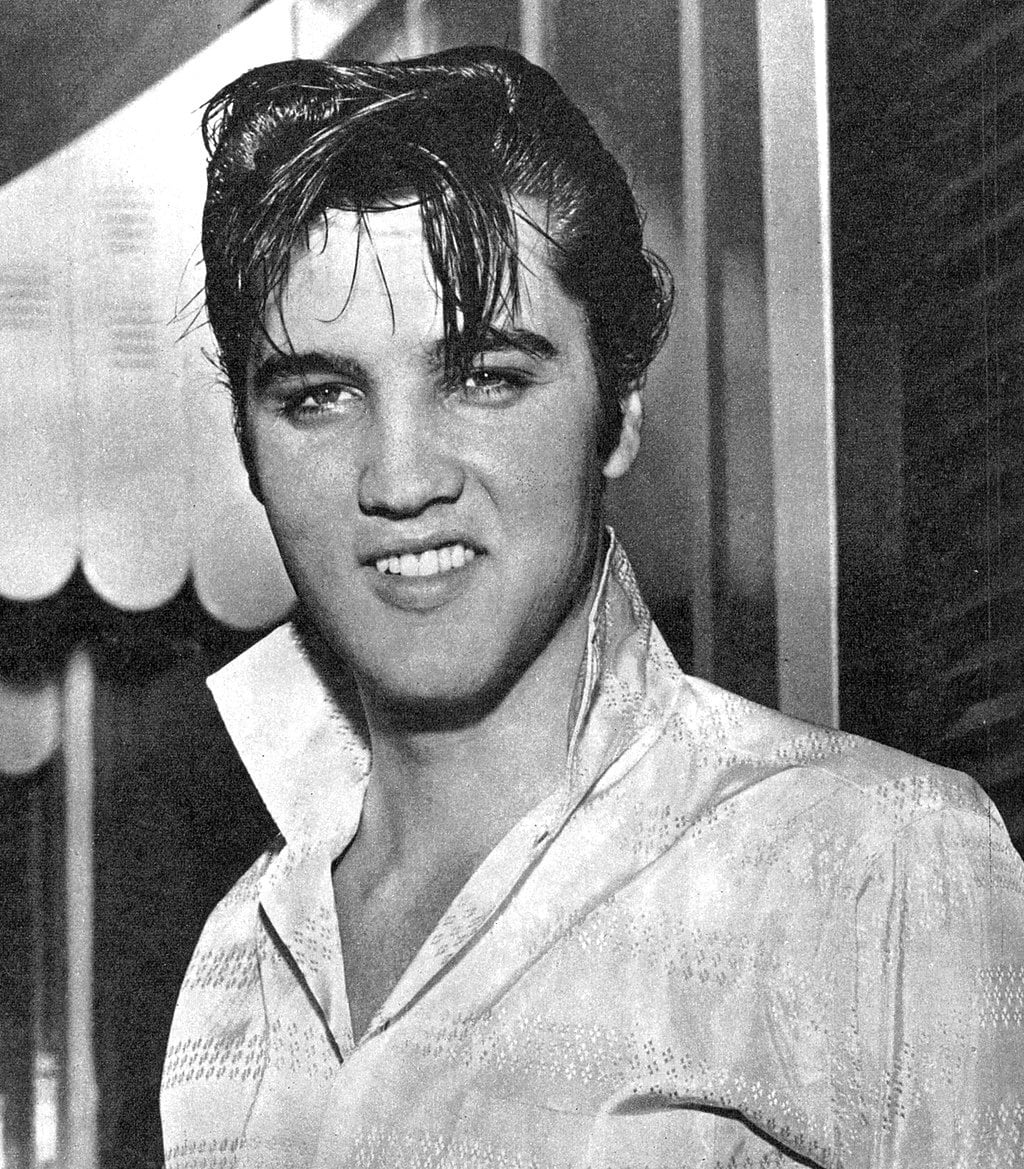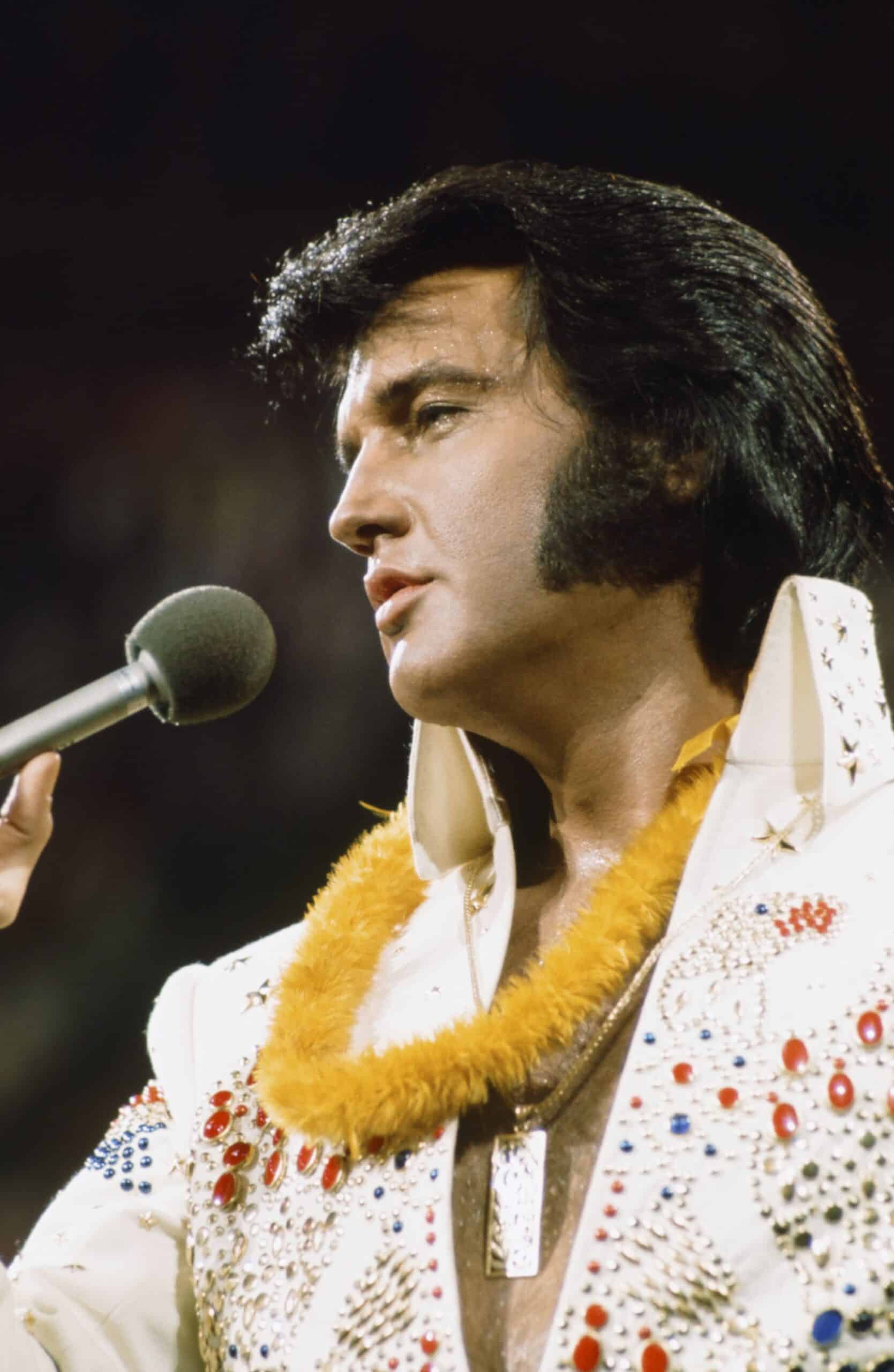When did Elvis die? That's a question that has haunted fans for decades, and today we're diving deep into the truth behind the King's final chapter. It's not just about the date—it's about understanding what led up to that moment and how it changed music history forever. Get ready, because this isn't your average story—it's a rollercoaster of fame, fortune, and the inevitable passage of time.
Elvis Presley wasn’t just a singer; he was a cultural phenomenon, a man who redefined music and entertainment for generations. His death wasn’t just an event—it was the end of an era. People often ask, "When did Elvis die?" but they rarely explore the full picture. We're here to uncover every angle, from his early days to his final moments, because understanding his legacy means understanding his life in its entirety.
This article isn’t just about answering the question “when did Elvis die.” It’s about celebrating the man behind the music, the struggles he faced, and the impact he left on the world. So buckle up, because we’re about to take a journey through the life and times of the King himself.
Read also:Nicki Minaj Nudr The Untold Story Behind The Viral Sensation
Table of Contents
Elvis Biography: A Glimpse Into the King's Life
When Did Elvis Die: The Exact Date
Elvis's Final Days: A Closer Look
Elvis's Legacy: How He Changed Music Forever
Elvis Memorials: Honoring the King
Read also:Howie Mandel Age A Deep Dive Into The Life And Legacy Of A Comedy Icon
Elvis's Health Issues: The Warning Signs
Busting Myths About Elvis's Death
How Fans Reacted to Elvis's Death
The Impact of Elvis's Death on the Music Industry
Conclusion: Remembering the King
Elvis Biography: A Glimpse Into the King's Life
Before we dive into the question of "when did Elvis die," let's take a moment to appreciate the man who became a legend. Elvis Presley was born on January 8, 1935, in Tupelo, Mississippi. His journey from a humble beginning to becoming the King of Rock 'n' Roll is nothing short of extraordinary.
Early Life and Career
Growing up in a poor family, Elvis found solace in music. His unique voice and style quickly set him apart, and by the mid-1950s, he was a household name. Songs like "Hound Dog" and "Jailhouse Rock" became anthems for a generation, and his electrifying performances redefined live concerts.
But it wasn’t all smooth sailing. Elvis faced his fair share of challenges, from critics who dismissed his music as vulgar to personal struggles that would eventually shape his later years. Understanding his biography gives us a clearer picture of why his death was such a shock to the world.
Here’s a quick glance at Elvis’s life in numbers:
- Born: January 8, 1935
- First Recording: 1953
- First Hit: "Heartbreak Hotel" (1956)
- Grammy Awards: 14 nominations, 3 wins
- Final Performance: June 26, 1977
Elvis's Personal Life
Elvis wasn’t just a musician—he was a husband, a father, and a son. His marriage to Priscilla Beaulieu and their daughter Lisa Marie added another layer to his story. But like many celebrities, his personal life was often overshadowed by the demands of fame.
Here’s a quick rundown of Elvis’s personal life:
| Fact | Detail |
|---|---|
| Spouse | Priscilla Beaulieu Presley |
| Daughter | Lisa Marie Presley |
| Residence | Graceland, Memphis, Tennessee |
When Did Elvis Die: The Exact Date
So, when did Elvis die? The official date is August 16, 1977. It’s a day that fans around the world remember with a mix of sadness and reverence. Elvis was found unresponsive at his home, Graceland, and was pronounced dead at Baptist Memorial Hospital in Memphis, Tennessee.
But the question of "when did Elvis die" isn’t just about the date. It’s about the circumstances surrounding his death and the legacy he left behind. In the following sections, we’ll explore what led up to that tragic day and how it changed the world.
What Caused Elvis's Death?
Elvis’s death was officially ruled as cardiac arrhythmia, but the underlying causes were far more complex. Years of prescription drug use, poor diet, and the relentless demands of fame took a toll on his health. While the official cause might be listed as heart-related, many believe that a combination of factors contributed to his untimely passing.
Dr. George Nichopoulos, Elvis’s personal physician, faced scrutiny for prescribing large quantities of medication to the King. This controversy added fuel to the fire, raising questions about the role of healthcare in celebrity culture.
Key Factors in Elvis's Death
- Cardiac Arrhythmia
- Prescription Drug Use
- Poor Diet and Lifestyle Choices
- Stress and Exhaustion from Touring
Elvis's Final Days: A Closer Look
Elvis’s final days were a mix of public appearances and private struggles. His last concert took place on June 26, 1977, in Indianapolis, Indiana. Fans remember it as a powerful performance, but those close to him noticed signs of fatigue and declining health.
In the weeks leading up to his death, Elvis reportedly struggled with insomnia and relied heavily on medication to manage his symptoms. His final moments at Graceland were surrounded by loved ones, a fitting end for a man who cherished his family above all else.
Elvis's Last Performance
Let’s take a moment to reflect on Elvis’s final concert. It was a night filled with emotion, as the King performed hits like "Can't Help Falling in Love" and "Unchained Melody." Little did anyone know it would be his swan song.
"I’ve been in the business for many years, and I’ve never seen anyone connect with an audience like Elvis did that night," recalled a concertgoer. It’s a testament to his enduring talent and charisma, even in the face of adversity.
Elvis's Legacy: How He Changed Music Forever
When people ask, "When did Elvis die?" they’re often really asking about his legacy. Elvis wasn’t just a musician; he was a cultural icon who broke barriers and inspired countless artists. His influence can be heard in the music of everyone from Bruce Springsteen to Justin Timberlake.
Elvis’s legacy extends beyond music. He became a symbol of the American Dream, proving that with talent and determination, anyone could rise to the top. His impact on fashion, film, and even social movements is undeniable.
Elvis's Influence on Music
Here are just a few ways Elvis changed the music industry:
- Popularized Rock 'n' Roll
- Influenced Generations of Artists
- Broke Racial Barriers in Music
- Revolutionized Live Performances
Elvis Memorials: Honoring the King
After answering the question "When did Elvis die," many fans wonder how to honor his memory. Graceland remains one of the most popular tourist destinations in the world, attracting thousands of visitors each year. The museum and exhibits there offer a glimpse into Elvis’s life and career, preserving his legacy for future generations.
Annually, fans gather at Graceland for the "Elvis Week" celebration, a tribute to the King’s life and music. It’s a powerful reminder of the impact he had on the world and the love he inspired in so many people.
Elvis's Health Issues: The Warning Signs
Elvis’s health problems didn’t happen overnight. They were the result of years of stress, poor lifestyle choices, and the demands of fame. His weight fluctuated dramatically, and he suffered from various ailments, including glaucoma and liver damage.
Many believe that if Elvis had received better care or taken steps to improve his health, his story might have ended differently. It’s a cautionary tale about the dangers of neglecting one’s well-being in the pursuit of success.
Elvis's Battle with Prescription Drugs
Prescription drug use was a significant factor in Elvis’s decline. He reportedly relied on medications to manage pain, sleep, and anxiety, but the long-term effects were devastating. It’s a reminder that even the most successful people aren’t immune to the challenges of mental and physical health.
Busting Myths About Elvis's Death
Over the years, numerous myths have surfaced about Elvis’s death. Some claim he faked his own death, while others believe he’s still alive and living in obscurity. While these theories make for interesting conversation, the facts tell a different story.
Elvis’s death was a tragic event, but it’s important to remember the man behind the legend. He was a complex individual who gave the world so much through his music and artistry.
How Fans Reacted to Elvis's Death
The reaction to Elvis’s death was overwhelming. Fans around the world mourned the loss of a true icon, and tributes poured in from every corner of the globe. Graceland became a place of pilgrimage, where fans could come together to celebrate his life and music.
Many fans remember where they were when they heard the news, much like how people recall the Kennedy assassination or 9/11. It was a moment that united millions in grief and admiration.
The Impact of Elvis's Death on the Music Industry
Elvis’s death marked the end of an era, but it also paved the way for new artists and genres. His influence can still be felt in the music of today, and his story continues to inspire musicians and fans alike.
The music industry learned valuable lessons from Elvis’s life and death, emphasizing the importance of health, balance, and authenticity in the pursuit of success. It’s a legacy that continues to resonate with artists and audiences worldwide.
Conclusion: Remembering the King
When we ask, "When did Elvis die," we’re really asking about the man who changed music forever. His life was a testament to the power of talent, determination, and passion. While his death was tragic, his legacy lives on in the hearts of millions.
We invite you to share your thoughts and memories in the comments below. Whether you’re a lifelong fan or new to Elvis’s music, there’s always something to discover about the King. And don’t forget to check out our other articles for more insights into the world of music and entertainment!


